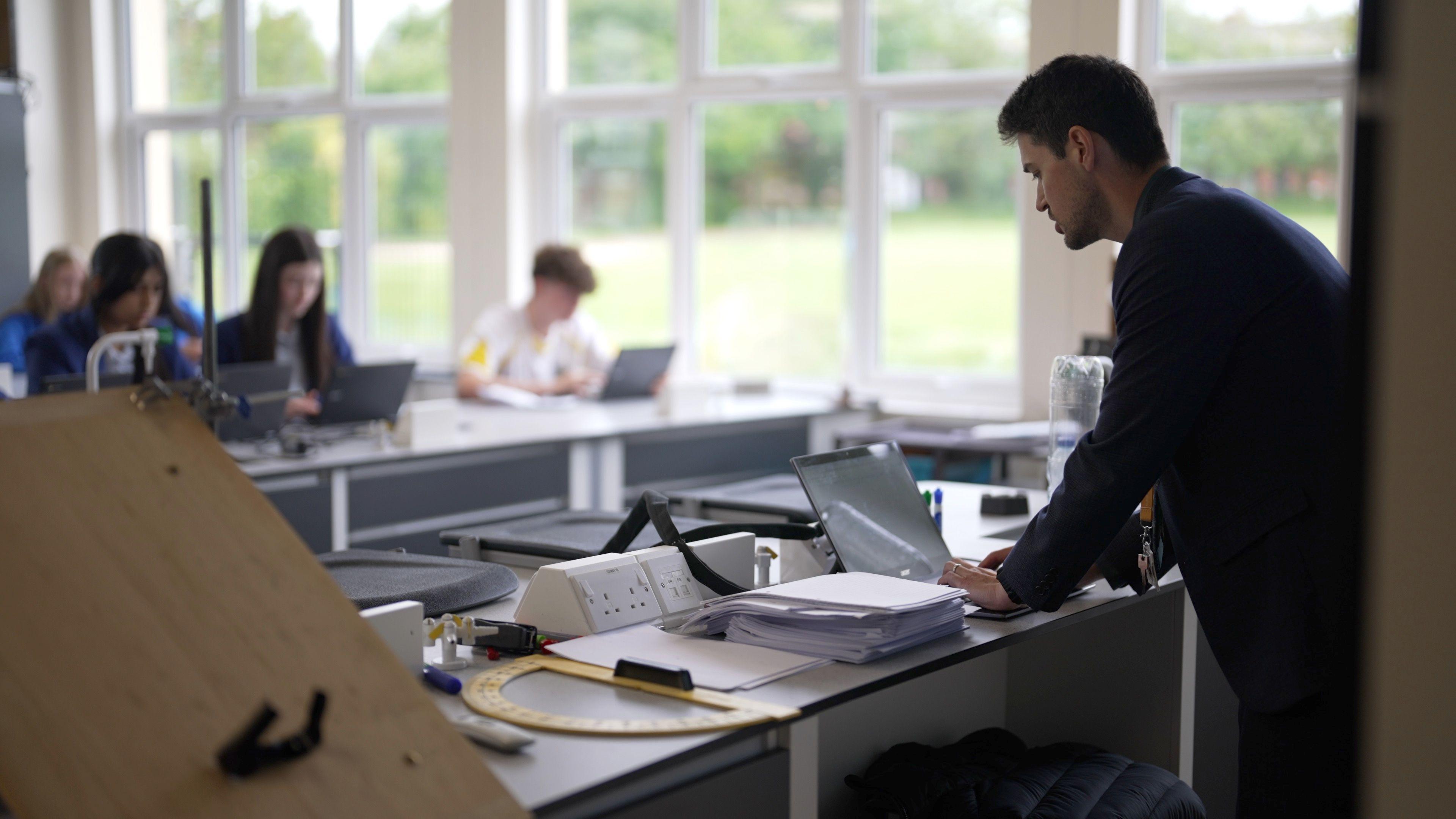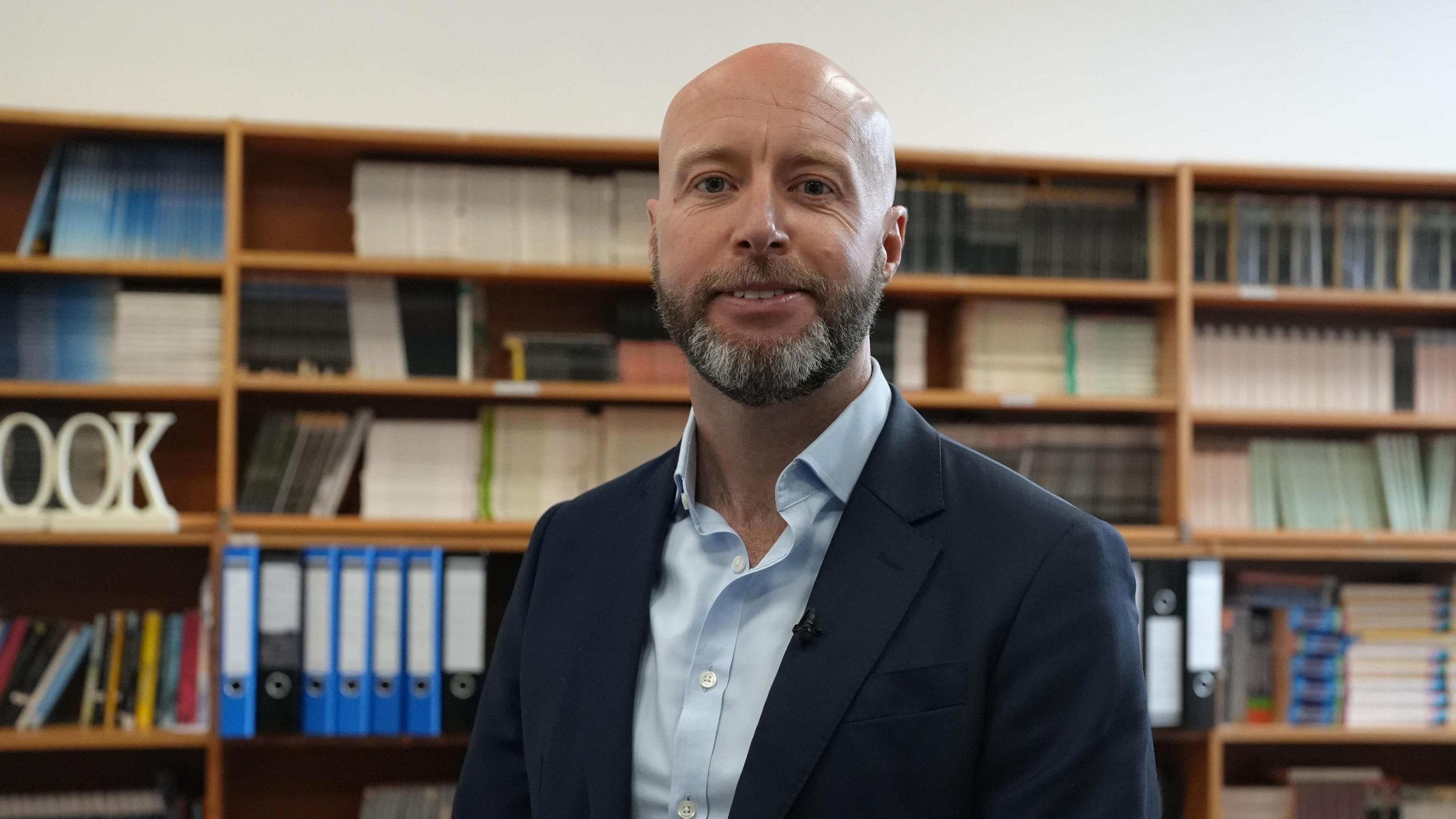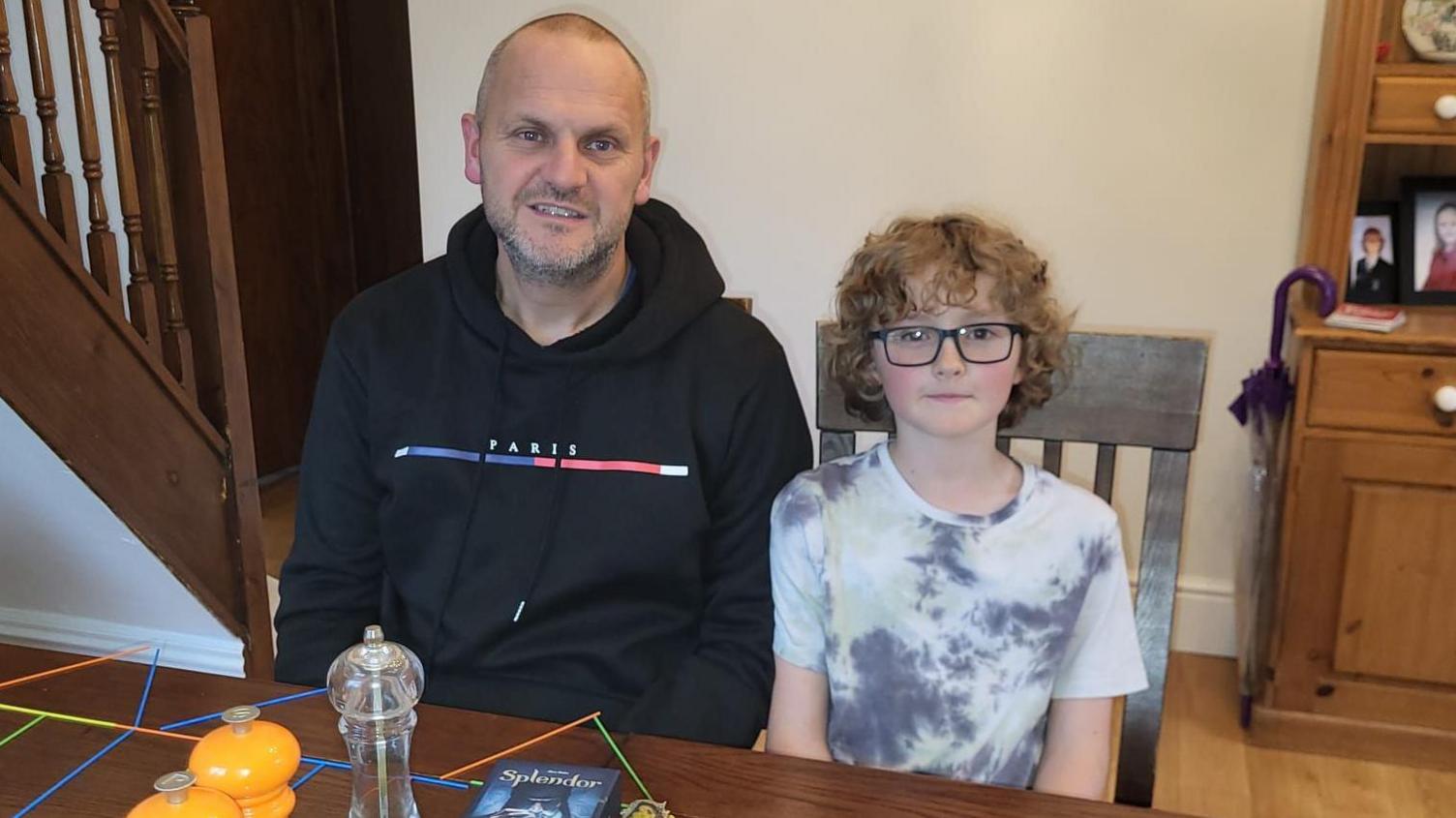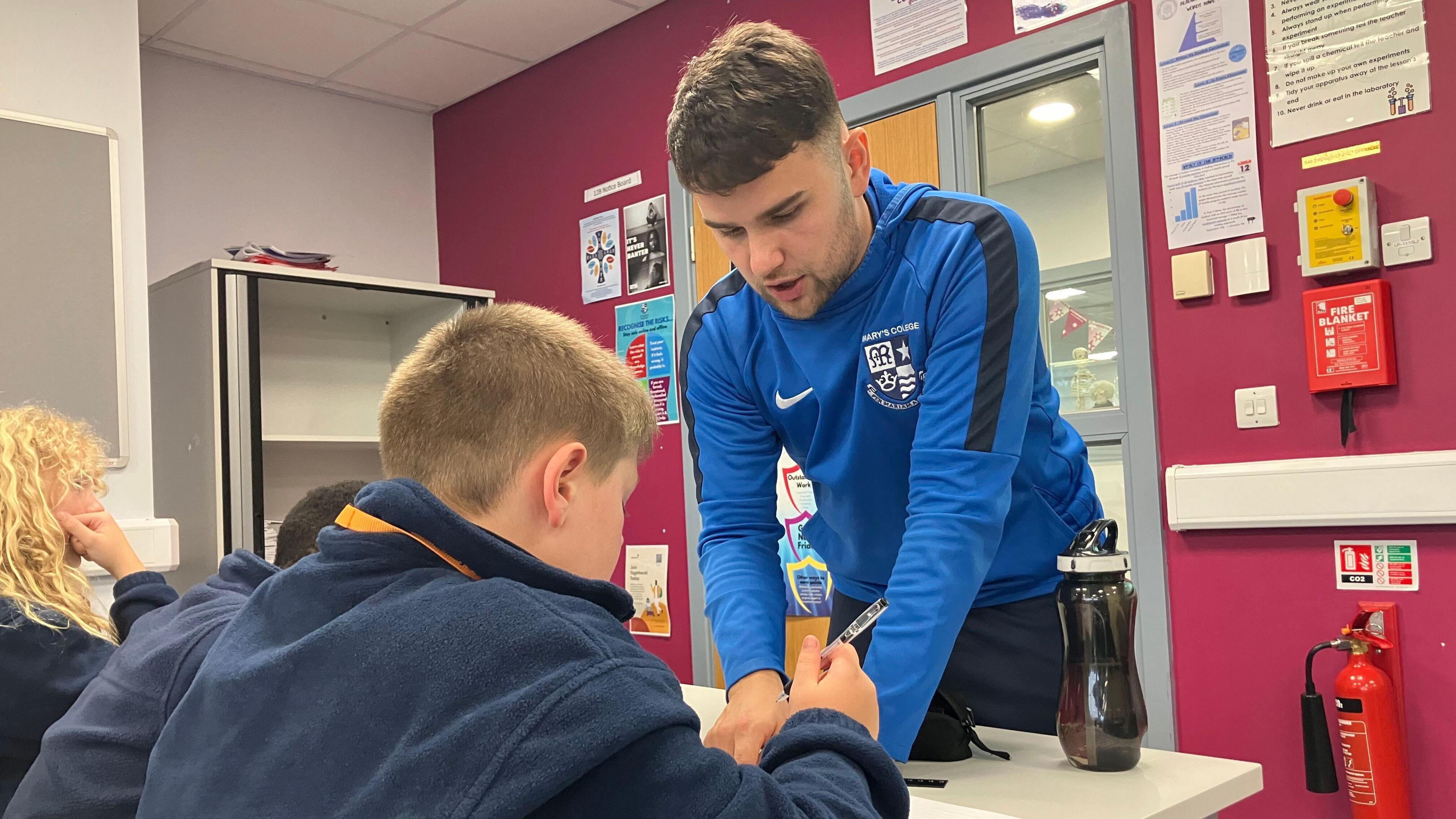
There are fewer pupils starting secondary private school this year, according to the body that represents most independent schools in the UK.
The Independent Schools Council (ISC) says some members reported a 4.6% fall in Year 7 pupils in September, in figures seen exclusively by BBC News.
Experts say the declining birth rate and cost of living could be having an impact - but the ISC attributes the drop to parents deciding against sending their children to private school, after plans to charge value added tax (VAT) from January were announced.
The government says it does not expect the policy to have a significant impact on the number of pupils attending private schools.Parents at Hulme Grammar School in Oldham will have to pay 20% more from January, as the school cannot afford to absorb the VAT changes.
It currently charges up to £14,200 a year.
Principal Tony Oulton says the school is receiving “multiple phone calls” daily from parents worried about the forthcoming fee rise.
“The majority of parents are making real sacrifices and are prioritising spending on their children's education over everything else,” he says.
The school has 110 students with special educational needs and disabilities (Send) on its roll.
But only eight of those have an education, health and care plan (EHCP), which means they will be exempt from the VAT increase.
Mr Oulton says parents are already removing their children from the school because of the policy.

Principal Tony Oulton says the VAT changes will mean “changes and potential job losses” at fee-paying Hulme Grammar School
Following a questionnaire to its members, the ISC found a 1.7% drop in pupil numbers across all year groups at the start of this academic year, based on the responses of 1,185 schools.
This means 8,233 fewer pupils than last September in those schools.
And as the policy is being introduced in the middle of the school year, the ISC believes the drop is “the tip of the iceberg” and expects to see a higher number of pupils leaving the system next September.
The 4.6% drop in students starting Year 7, based on responses from 731 schools, is the biggest it has seen in that year group for at least five years.
ISC chief executive Julie Robinson says parents are being “put off just by the prospect of VAT” and the figures show the government has underestimated the pupil displacement that will be caused.
Impact 'likely to be small'
But Luke Sibieta, from the Institute of Fiscal Studies (IFS), expected the number of private school pupils to fall even without the VAT rise, because of a decline in the birth rate making its way through the school system.
It is also possible “parents are reconsidering whether private school really represents value for money”, as fees have increased more than inflation over the past decade, including a 9% rise last year, he says.
The IFS says the impact of the VAT changes is “likely to be small and concentrated” with about 20,000-40,000 extra pupils (3-7%) moving from the private to the state sector over the next few years because of the policy.
Richard Clark moved his son, Harry, from a state to a private school to try to better support his academic talents.
Harry, 10, took his GCSE maths in August and achieved a grade eight.
But the looming changes mean the family can no longer afford the £8,000-a-year fees and are struggling to find a state school place that can support Harry’s abilities.

Harry, 10, achieved a grade eight in his maths GCSE
Mr Clark, a qualified nurse and lecturer, says: “We are not massively paid.
"I earn in the £40,000s and my wife is in the £30,000s.
"We sacrifice so much but effectively are being forced into this position.
“My daughter goes to a state school and I want her funding to be improved - but this change is going to impact a lot of families.”
'Wide offer'
The government says the money raised will fund its education priorities such as recruiting 6,500 specialist teachers in England.
Schools are struggling to hire teachers in maths, science, and art and design.
St Mary's College in Hull, an outstanding school, has had to drop its design-and-technology GCSE this year after it failed to recruit.
“I have students that want to be the architects of the future,” head of school Maria Stead says.
"It has an impact on some students and on the curriculum, because I want to have a school where we have a really wide offer of subjects."

Callum Vernon switched from teaching PE to science after St Mary’s struggled to recruit
But Ms Stead worries about where the new teachers promised will come from - and what impact the VAT changes will have on the area.
Her school already has 2,500 students.
“Every secondary school in the city is oversubscribed," Ms Stead says.
"I cannot take significantly more numbers here, because we simply don't have the room.”
A government official said the policy "will ensure all children have the best chance in life to succeed".
"The number of pupils in private schools has remained steady since 2000, despite around a 75% real-term increase in private school fees since that time", the official added.
Additional reporting by Harriet Agerholm, Elaine Dunkley and Kristian Johnson
From BBC
